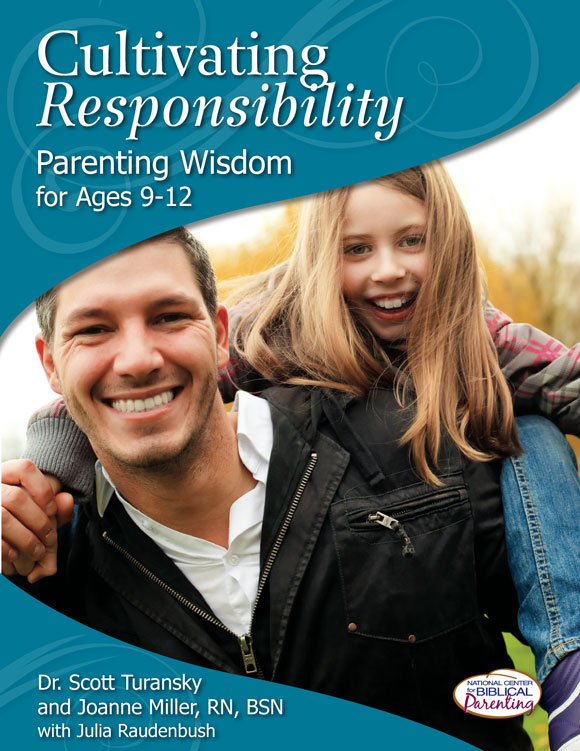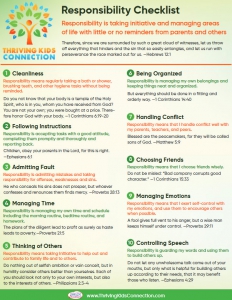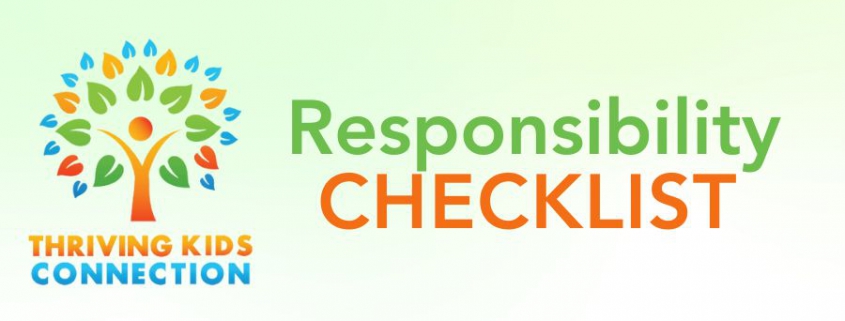Cultivating Responsibility in Preteens and Teens

This article is the first chapter of the book Cultivating Responsibility written to help parents know how to build internal motivation and initiative in young people.
The Bible extols the virtuous woman, and likewise the man of God. But how do men and women of noble character get that way? Are they just born “good people,” or is there more to it than that? Is it possible to raise a child of noble character in a culture that only seeks to serve self?
In order to help children develop God-glorifying character, it’s important to recognize the difference between character and personality. Character is something that’s developed over time, while personality is something often defined from birth. You can’t change your child’s hard-wiring, but you can help shape the choices that he or she makes. For example, lying is a character flaw, not a personality flaw. Personalities have weaknesses and that’s where character becomes so important. The child who has a bubbly, outgoing personality, may have trouble being sensitive to how she dominates a situation. That annoyance is overcome by developing character qualities such as sensitivity and self-control.
No Excuses
Sometimes parents dismiss character flaws with the excuse, “Well, that’s just the way he is.” This excuse is un-acceptable for Christians. It may be the way that he is, but it’s not the way God wants him to be. It’s interesting to see how personality is molded over time. For example, the mom who tends to worry about everything may pass that negative tendency on to her son. It’s often that parents stop and consider their ways as they see their children mimic their own behavior. The reality is that the Lord uses children to hone the character of their parents. In fact, the home is best viewed as a laboratory of growth for all who live under its roof. Being a good parent implies humility, and communicating to children the value of God’s grace in your life can set a tone for growth for all.
Strong character is built in children through practice. Experience and training are often required, and parental firmness usually plays an important part. That doesn’t imply that you have to be mean to your kids, but it does suggest that you’ll need to stay at it, help your child build new habits and patterns, and determine to help your child live a different way.
Romans 5:3-4 says, “Suffering produces perseverance; perseverance, character; and character, hope.” Paul, in this passage, is helping the Romans see that the pain and trials they experience have benefit for their lives. Their job is to persevere in the midst of the pressure, and, as a result, character and hope develop. In a similar way, parents put strategic pressure on their kids in certain areas to require character development.
If your son, for example, has a problem with meanness, you may have a meeting with him to talk about the need for developing kindness in his life. That’s a positive meeting that answers the question “Why is kindness important anyway?” That kind of teaching may be all that’s needed.
However, some children do better learning through experience. You may have to draw attention to mean comments in order to raise the awareness level, and you may have to provide a consequence to increase your son’s motivation to change. All those are helpful, but be careful to also add the positive. What do you want your child to do instead? Your son may need some practice at being kind, so you might say, “Son, I’d like you to think of three kind things you can do for your brother before you can go play again.”
Let’s Get Practical
Talking about character with kids is a great way to get them thinking about it in practical terms. You might even identify Bible verses that relate to certain qualities to help reinforce the biblical thinking in these areas. You might consider qualities that are strengths, not just weaknesses, seen in your home such as honesty, humility, diligence, contentment, flexibility, and generosity. As you go about your day, you can then illustrate the qualities in positive ways, not just negative ones, in the lives of your children and in others.
Children need to understand that they are on a mission toward growth and maturity. It’s not all about performance and behavior. It’s also about the heart. Character is not something that just happens. It’s developed over time through teaching, modeling, and training. This is true of both good and bad character traits. When we think of good character, we often think of great people of the past, or people we know that have some extraordinary qualities. You might even use these people as examples of desirable character.
Be sure to point out progress as you see it develop. Remember that the developing of character produces hope according to Romans 5:4. Sometimes children need to see their progress, and by pointing out the small steps of growth, your child’s hope provides an encouragement to move forward even more.
In your discussions on character, differentiate between good and godly character. There are a lot of nice, good people in the world who do a lot of nice, good things. Your child may wonder what the big deal is about being a Christian when he sees people, particularly his favorite celebrities, doing good at seemingly great cost to themselves with no visible payoff. Godliness is often demonstrated in the motivation. The world may be motivated by obligation, self-fulfillment, or attention. Christians are motivated by a desire to please God. True spirituality is often shaped through character training when it’s tied to a motivation that comes from a sense of godliness put into action.
It’s a Process, and it Starts Now!
Building a child’s character is a process that takes wisdom, patience, and a lot of prayer. When it seems that all your best efforts are to no avail, remember that God only calls you to be faithful. Train, model, and reinforce desirable character traits, but leave the results to the Lord. Strong character takes time to develop. Don’t become discouraged because of a deeply ingrained shortcoming in your child’s life. Stay on it and do the training necessary to produce the maximum benefit over time.
To start the discussion with your child, you might want to use this RESPONSIBILITY CHECKLIST. Ask “What are two strengths you have so far, and what are two things you need to work on now?”





This is a great tool to use with young people to see what should be expected of them and where they need work. Our society has cultivated some selfish attitudes and kids may not have as much expected of them that previous generations have had. This can guide parents to evaluate what is necessary for responsibility training. Thank you!